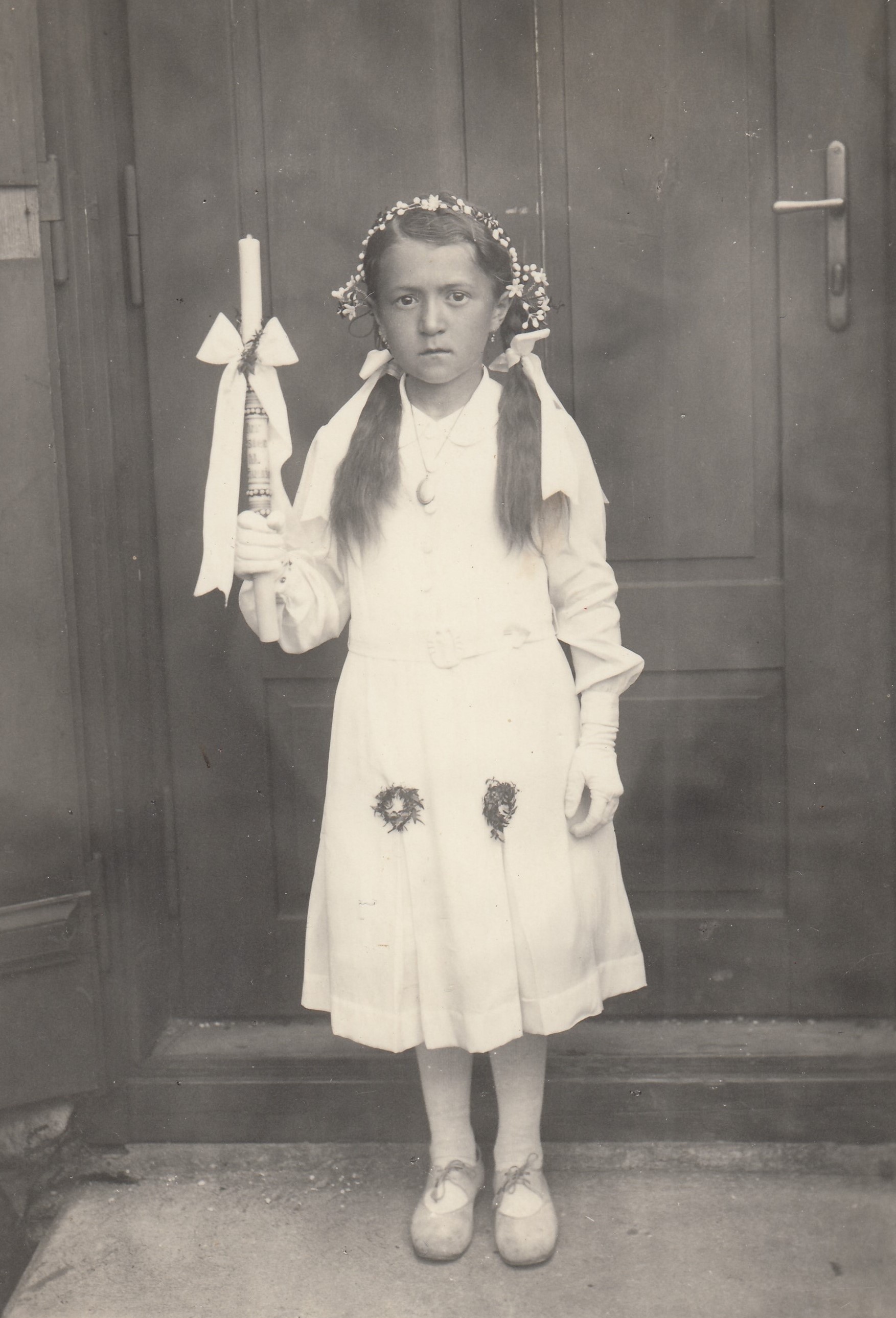Home to 50 kilos. That was just life.

Stáhnout obrázek
Elsa Reiminger Markgraf was born on 19 June 1930 in the village of Dolní Hut‘ (German: Unterhütte), located right on the Czechoslovak-Bavarian border. Her father died in 1943 in a Breslau hospital during the Second World War. On July 16, 1946, they were loaded onto the first transport and deported. She and her mother went through several camps, first arriving at the assembly camp in Holýšov, Czechoslovakia (German: Holleischen). From there, they were transported in transport 10 via Furth im Wald to Augsburg. The last camp they passed through was Heuberg. They docked for a while at Nördlingen, but then returned to the border area to the village of Schwarzach. In 1950 they managed to build a new house there. In Bavaria, Elsa Markgraf became acquainted with Hermann Markgraf, a native of the same village and also a displaced person. They married in 1953, when the witness was 23 years old. They raised two children together, a son, Hermann, and a daughter, Anita. Her husband died in 1970. Elsa Markgraf still lives in the house in Schwarzach.



